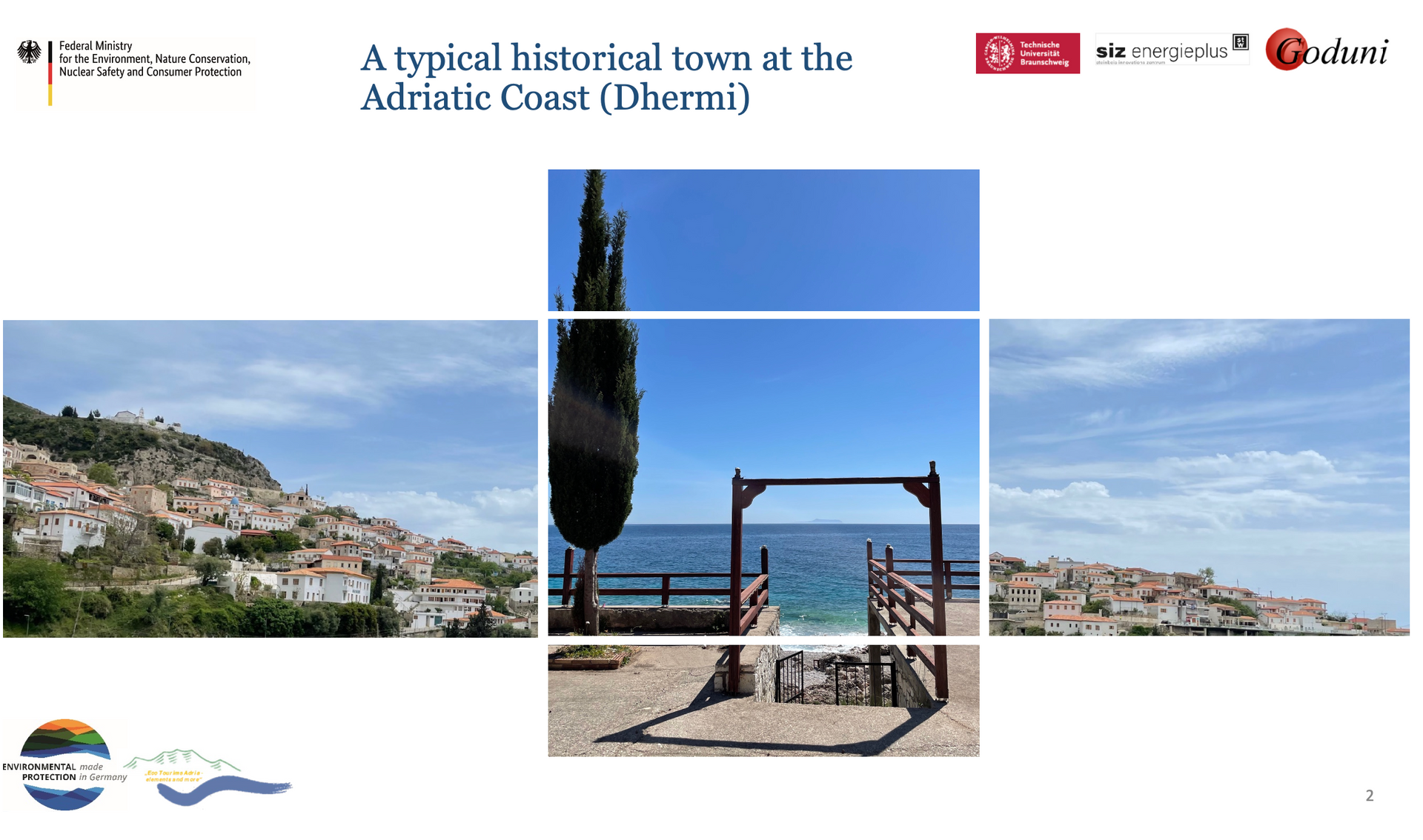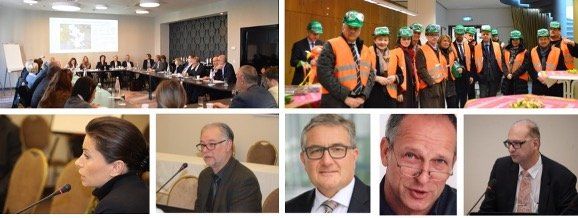EcoTourism
"Eco Tourism" is one of our competence fields focusing on sustainable, climate neutral and profitable investments in renewable energy and circularity in cities, towns and villages at Coasts. It is one of the energy business unit pillars.
In this context we provide banks, insurance corporations, investors, financial institutions (EIB, EBRD, IFC, GiZ, etc.) as well as representatives of Local and Central Governments with expert opinions and feasibility studies as well as red flag due diligences and assessments of projects and investments.
Relevant background
The series of the Eco Tourism projects started in 2015 in cooperation with our industrial partners, the Technical Universities of Clausthal and Braunschweig, siz energie+ and the support of EXI program of the German Federal Ministry for the Environment, Natur Conversation and Nuclear Saftey. It focuses on the conceptual- technological design for the transformation of touristic villages, towns and cities in the Adriatic Tourist Region aiming to become climate neutral and attractive to investors, tourists and citizens.
It started in five Countries with feasibility studies and capacity building for the introduction of innovative solutions and demonstration of "Ideal Typical Adriatic Coast" parks. Subsequently the teams worked on the conceptual design of combined technical solutions (combining disposal, supply and storage) covering load peaks of touristic complexes, industrial zones, villages, towns and cities. The designed solutions are fully-integrated, scaleable, modular and can be easily adopted and rolled out throughout the region and also in other touristic countries/regions. During this project we cooperated with investors, representatives of Governments, Local Authorities and Stakeholders (such as owners of touristic complexes, bed & breakfast houses, farms, industries, etc.).
In April 2023 we demonstrated the case studies and projects in the following cities and Countries to an interested audience of 100 participants in Zagreb / Croatia.
Ongoing projects:
Albania - Dhermi;
Albania - Lezhe;
Croatia - Razanac;
Croatia - Rijeka;
Montenegro - Ulqin;
Slovenia - Solcava;
Slovenia - Moravske Toplice;
energy market
selected content
Goduni International Team - Armida Hemeling
Goduni International Team - Armida Hemeling
Typical Adriatic Village
What is a "Typical Adriatic Village"?
Per project definition it is a historical, cultural, small village with family-run and traditional styled small Adria-typical-architectural hotels and bed & breakfasts in Albania, Montenegro, Croatia and Slovenia. Such villages are attractive to many foreign and domestic tourists because of their characteristics mentioned above and the closeness to the Adriatic Sea and mountains in which they are embedded. These villages are very important parts of each national and regional cultural heritage. On the left and below you see one of our project villages "Dhermi".
Modernization needed
The downside of being a traditional oriented village at the Adriatic Coast is, that the stakeholders and tourists are confronted with ineffective, unsustainable and insufficiently managed supply and disposal structures. This is mainly due to the small size of the villages and less attractiveness for business providers to manage proper services or to invest. It is also partly due to the fragmented investors´ / owners´ structure which also limits investments.
As the perception of the tourists and of the owners is changing, the owners and local authorities are determined to eliminate these inefficiencies and incompatibility of different systems and to transform / modernize the sites and villages by preserving the culture, heritage, landscape and nature. They aim to become sustainable and more attractive to tourists with higher quality demands and an ecological mindset.
We are developing the model und supporting this transformation as it fits very well to our mindset, expertise and capabilities. This project is to become a flagship and best practice for others. It includes all stakeholders working together and shaping their future.












